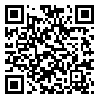Fri, Apr 4, 2025
| فارسی
Volume 20, Issue 4 (Winter 2015)
IJPCP 2015, 20(4): 339-348 |
Back to browse issues page
Download citation:
BibTeX | RIS | EndNote | Medlars | ProCite | Reference Manager | RefWorks
Send citation to:



BibTeX | RIS | EndNote | Medlars | ProCite | Reference Manager | RefWorks
Send citation to:
Khanipour H, Hakim-Shooshtari M, Borjali A, Golzari M, Falsafinejad M. Relationship between Impulse Control Difficulties and Non-Suicidal Self-Injury in Adolescents with Childhood Maltreatment History: Mediating Role of Self-Inadequacy . IJPCP 2015; 20 (4) :339-348
URL: http://ijpcp.iums.ac.ir/article-1-2305-en.html
URL: http://ijpcp.iums.ac.ir/article-1-2305-en.html
Hamid Khanipour 
 1, Mitra Hakim-Shooshtari2
1, Mitra Hakim-Shooshtari2 
 , Ahmad Borjali3
, Ahmad Borjali3 
 , Mahmoud Golzari3
, Mahmoud Golzari3 
 , Mohamadreza Falsafinejad3
, Mohamadreza Falsafinejad3 


 1, Mitra Hakim-Shooshtari2
1, Mitra Hakim-Shooshtari2 
 , Ahmad Borjali3
, Ahmad Borjali3 
 , Mahmoud Golzari3
, Mahmoud Golzari3 
 , Mohamadreza Falsafinejad3
, Mohamadreza Falsafinejad3 

1- Allame- Tabatabaee university, Tehran, Iran, IR. Fax: +9821-22180045 , E-mail: khanipur.hamid@gmail.com
2- Mental Health Research Center, Tehran Institute of Psychiatry- School of Behavioral Sciences and Mental Health, Iran University of Medical Sciences, Tehran, Iran
3- Allame- Tabatabaee university, Tehran, Iran.
2- Mental Health Research Center, Tehran Institute of Psychiatry- School of Behavioral Sciences and Mental Health, Iran University of Medical Sciences, Tehran, Iran
3- Allame- Tabatabaee university, Tehran, Iran.
Abstract: (10692 Views)
Type of Study: Original Research |
Subject:
Psychiatry and Psychology
Received: 2015/06/24 | Accepted: 2015/06/24 | Published: 2015/06/24
Received: 2015/06/24 | Accepted: 2015/06/24 | Published: 2015/06/24
| Rights and permissions | |
 |
This work is licensed under a Creative Commons Attribution-NonCommercial 4.0 International License. |

